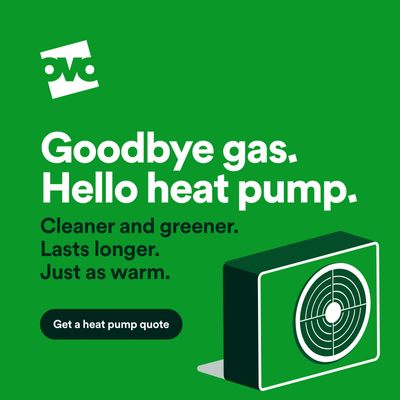Don’t Install a Heat Pump Until You Read This
If you’re considering a heat pump or had one recently installed, this article is for you. Our six-year journey with a heat pump has been a rollercoaster of expensive mistakes, lessons learned and a mission to help others avoid our pitfalls. Heat pumps are incredible technology when installed and designed correctly. But when things go wrong, they can become a source of great frustration. Here’s what you need to know to ensure your heat pump journey is a success.
The Start of Our Heat Pump Journey
Six years ago, after an extensive vetting process, we appointed Global Energy Systems to install our air source heat pump. Global Energy Systems supplied the unit and subcontracted the physical installation to another MCS-accredited company, All Seasons Energy, while maintaining the full contract with us.
From the very beginning, it was evident something was amiss. The first three winters were plagued with issues: rooms that wouldn’t heat properly, issues with the controls and higher than expected running costs, temporarily obscured by the cushion of cheap electricity tariffs at the time.
Each time Global Energy Systems dispatched a team to address our concerns, we talked ourselves into believing things had improved – perhaps out of desperation to justify the £16,000 investment in the system. But as soon as the next cold spell hit, the same problems reared their ugly heads. In hindsight, it’s glaringly obvious: the installation wasn’t just flawed – it was fundamentally botched from the start.
A System That Was Never Designed to Work
One of the biggest revelations came years later as we gradually started to educate ourselves on low temperature heating: our system as a whole was never designed to work properly with a heat pump. Instead, it was slapped in to run like a boiler. This critical error was evident from the start, but we didn’t know enough then to question it.
The heating services and operations engineer from Global Energy Systems commissioned our system to run on a 45°C set point – a decision that is utterly indefensible if you understand how heat pumps should work. Heat pumps are designed to operate most efficiently at lower flow temperatures: the higher the flow temperature, the more energy they consume, driving up costs and eroding efficiency. Shockingly, when we inquired about weather compensation – a feature that optimises system performance by adjusting flow temperatures based on outdoor conditions – Global Energy Systems outright denied that their heat pump had this capability.
This was a blatant lie. Years later, after tinkering with the control panel, we discovered weather compensation settings and heat curve adjustments buried in the system. Global Energy Systems, it seems, had deliberately chosen to run the system at a fixed 45°C, not for our benefit, but to mask deeper issues with the system’s design and performance.
As we learned more about heat pumps, we suspected that a proper heat loss calculation and heating design had never been done. When we confronted Global Energy Systems, they admitted it hadn’t. This was a massive blunder. Proper heat loss calculations are the cornerstone of any heat pump installation. Without them, you’re essentially flying blind, which explains the inadequacies of our system.
The Saga of Cold Rooms and Circulation Pumps
For years, cold spells exposed more limitations of our system. The north end of our house – where the index circuit is – struggled to exceeded 16°C when outdoor temperatures dropped below 3°C. Global Energy Systems' solution? Add more or upsize circulation pumps. We now have four, and they haven’t resolved the problem. Instead, they’ve increased our running costs.
When we had our system evaluated by some of the UK’s top installers, their feedback was unanimous: the system had no design and was set up to fail. As Ken Bone explains in the video below, it was essentially running as a boiler replacement with a Delta-T of 20, littered with on/off stats, which is unsuitable for a heat pump. Our house as a whole never had a chance of being heated efficiently.
Lessons Learned
Insist on a Proper System Design
Before installation, double, triple and quadruple-check that your system is designed properly. Ensure every room and heat emitter can hit its target temperature (19°C, 20°C or 21°C, depending on your preference). Get this in writing. These temperatures must be achievable when running weather compensation. Don’t let your installer convince you to settle for a fixed flow temperature. In mild months, this approach wastes energy and money.
Understand the Importance of Controllers
Heat pumps are fundamentally all very similar at their core: a metal box with pipes, refrigerant and a compressor. The controller, however, is what determines how effectively the system runs and does what you want it to do. In our case, the controller from Global Energy Systems has been dreadful. As we have a hybrid system, it can’t even run weather compensation if we wanted to use the boiler as a redundancy. Below 0°C, we’d have to manually turn the boiler on, which defeats the purpose of automation. There’s no scheduling. Frankly, there’s a lot missing. Opt for a brand that has a good controller.
Know Your Warranty Terms
Many warranties are tied to annual servicing. In our case, as per the warranty document, only Global Energy Systems could service the unit for the warranty to remain valid. This wasn’t communicated clearly upfront, leaving us at the mercy of the manufacturer. In addition to this, our unit came with a paltry three year warranty. Always ask about warranty terms and ensure you’re comfortable with them before committing. If something goes wrong, replacement components can be costly, so you have to ensure you’re covered for the longest time possible.
Look for Free Remote Monitoring Options From the Manufacturer
Global Energy Systems provided a three-year remote monitoring service via 4g, which allowed them to diagnose issues remotely. After that, they charge an annual fee. In contrast, some manufacturers like Mitsubishi offer free remote connectivity and telephone support for diagnosing problems. Check if your chosen manufacturer includes this service without additional charges. I’d also recommend that this connection is done via WiFi.
Don’t Settle for Less
If something feels off, don’t make excuses. We convinced ourselves that our system was working fine when it clearly wasn’t. Heat pumps, when installed correctly, keep you warm and comfortable. Don’t settle for anything less.
A Cautionary Tale with a Purpose
Despite our experience, we believe heat pumps are an amazing technology and the future of heating. They can deliver efficient, eco-friendly heating when installed correctly.
Our frustrations and lessons ultimately led to the creation of Renewable Heating Hub and writing two books: Bodge Buster and From Zero to Heat Pump Hero. Without our subpar installation and 2.7 SCOP system, these resource for homeowners wouldn’t exist. Now, we’re on a mission to educate others and help them avoid the mistakes we made.
Final Advice
- Take your time: Investigate and question everything your installer says. If you’re unsure, leave a question on our forums.
- Research thoroughly: Visit completed projects, speak to previous clients and understand the design process.
- Demand transparency: Don’t accept vague answers. Insist on clarity about system design, warranty terms, controls and monitoring options.
- Don’t let anyone rush you into a decision: A properly designed and installed system will keep you warm, save you money and reduce your carbon footprint.
Get a copy of The Ultimate Guide to Heat Pumps
Subscribe and follow our YouTube channel!
Interesting thread - our system will be 3 years old this winter and we have all of the botch issues that you mention - especially heating costs. It is clear that the install was sur a replacement boiler and we are on a fixed flow rate too. I will buy the book mentioned but wonder if you have a local installer to York you can recommend to review our system from top to bottom. I am struggling to find someone with the capability up here.
Welcome to the forums, @Andrew thornton. Sorry to hear about the challenges you’re facing. While I truly appreciate your interest in my book, it’s designed more as a beginner’s guide to help homeowners understand their systems rather than diagnosing issues from a botched installation.
I don’t personally know any good installers in York, but I can recommend two excellent options in Sheffield who might be willing to make the 90-minute trip. The first is @damon from Blakemore Plumbing and Heating ( http://blakemoreplumbingandheating.co.uk) and the second is @lee-brown from IMS Heat Pumps ( https://www.imsheatpumps.co.uk/contact).
I hope that helps.
PS - what brand heat pump do you have installed?
Get a copy of The Ultimate Guide to Heat Pumps
Subscribe and follow our YouTube channel!
The article makes sense, especially the Heat Loss calculation. I think that is absolutely crucial. I believe that there are specialists who undertake the work. If you have that in hand, you can use it as the project specification. Better than getting the installer to do their own.
Could I suggest/ask if there could be another selection criteria?
I see many new companies emerging onto the market. Some I have never heard of. I expect that they are regular companies with respectable products, maybe European companies exploring the UK market.
But, I might suggest caution. Mars mentions Warranties. I might suspect that if a company exits the market, even an insurance-backed guarantee might not be very practical. I am thinking worst case, for example a PCB (printed circuit board) fails.
So, I might suggest sticking with only those companies that can show a long track record of being in the ASHP game, in the UK?
Any views on that?
Hello,
Is Global Energy Systems you mention the one based in Lytham St Anne's? We have an ASHP fitted by them and there's been so many problems with it + high electricity bills. At our wits end.
Welcome to forums @Andi. Yes, it's the same company. Please elaborate on your issues, and when was it installed?
Get a copy of The Ultimate Guide to Heat Pumps
Subscribe and follow our YouTube channel!
Hi, we had our ASHP fitted by Global Energy Systems nearly three years ago and have had several problems from poor installation to repeated breakdowns and high electricity bills. In the winter our bill went over £400 for one month. After reading the first article, it seems we are not the only ones with these issues.
This week an engineer from Global spent more than four hours working on the pump, but we still cannot get the room temperature up to 20 degrees. If anyone knows an engineer who can help, I would really appreciate it.
Wow, the disappointed Global Energy Systems customers are emerging at speed. There are a lot of issues in Global's approach to installs and their lack of design competence.
@briansprankle, do you remember who the engineer was? Was he from Global Energy Systems?
Where in the country are you based (county)?
Get a copy of The Ultimate Guide to Heat Pumps
Subscribe and follow our YouTube channel!
This recent cold snap on mine has made we want to rip my heat pump out and go back to living in a cave.
2 years, numerous site visits, nothing changed. I told my installer 2 years ago that’s it’s undersized…. I was talked away from that, but it’s still under…..
@davidnolan22, it’s so frustrating. Sorry to hear that. Have you considered speaking to them again? Is the heat pump generating the heat and it’s the emitters that are not delivering the heat, or is the heat pump just not delivering the required flow temps at all?
What heat pump have you got?
Get a copy of The Ultimate Guide to Heat Pumps
Subscribe and follow our YouTube channel!
@editor there is plenty of emmiter capacity. The heat punp ain’t got the puff to get the flow temps required.
@davidnolan22, same old frustrating story. Sorry to hear that. Does the size match your heat loss calcs? If there’s a discrepancy you could escalate on the basis of misselling, and take the matter to one of the consumer codes.
Get a copy of The Ultimate Guide to Heat Pumps
Subscribe and follow our YouTube channel!
- 27 Forums
- 2,520 Topics
- 58.6 K Posts
- 479 Online
- 6,800 Members
Join Us!
Worth Watching
Latest Posts
-
Issue with a Grant Air Source Heat Pump & Tado Smart Thermostat
Hi all I'm having some trouble with a Grant ASHP and ...
By Renewables345 , 55 minutes ago
-
RE: Underfloor Heating Installation Issues with Heat Pump
We suffered a water leak last year in two rooms and had...
By MartinHook_UK , 1 hour ago
-
RE: Testing new controls/monitoring for Midea Clone ASHP
Now seems a good time to summarise the costs and effici...
By benson , 1 hour ago
-

RE: Heat Pump vs New Gas Boiler for Inherited House - Worth the Extra Cost?
*** I now see @jamespa has already posted but will stil...
By cathodeRay , 2 hours ago
-

RE: Tell us about your Solar (PV) setup
@mk4 Charge to 100%, discharge down to 10%.
By bobflux , 3 hours ago
-

RE: Daikin Altherma 3 LT compressor longevity question
This mess is intriguing: I wonder if this represent...
By bobflux , 4 hours ago
-
RE: Connecting Growatt SPH5000 over wired ethernet rather than wireless
The simplest wired option is usually the Growatt Ethern...
By Jonatan , 8 hours ago
-

RE: Peak Energy Products V therm 16kW unit heat pump not reaching flow temperature
ASHPs do have a minimum compressor speed. The minimum h...
By bobflux , 15 hours ago
-

RE: Electricity price predictions
@jamespa And it seems some of the nasty public cloud...
By Batpred , 15 hours ago
-

RE: Jokes and fun posts about heat pumps and renewables
Technology is rapidly advancing. BBC News reported th...
By Transparent , 18 hours ago
-

What matters for flow and pressure drop is internal dia...
By bobflux , 19 hours ago
-

RE: Do Fridges and Freezers have COP ratings?
@editor Thank you all for your replies and submitted in...
By Toodles , 22 hours ago
-

I know and yes. The secondary deltaT wont necessaril...
By JamesPa , 1 day ago
-

RE: Designing heating system with air to water heat pump in France, near Lyon
Just love the way you put it! 🤣
By Batpred , 2 days ago
-

RE: Safety update; RCBOs supplying inverters or storage batteries
Thank you for sharing. So it seems that your Schneid...
By Batpred , 2 days ago
-

RE: Forum updates, announcements & issues
@upnorthandpersonal thanks for the thoughtful, consider...
By Mars , 2 days ago
-

RE: Solar Power Output – Let’s Compare Generation Figures
@mk4 All 21 panels have their own Enphase IQ7a microinv...
By Toodles , 2 days ago
-
RE: Setback savings - fact or fiction?
Great, so you have proven that MELCloud is consistently...
By RobS , 3 days ago
-
RE: Mitsu PUHZ120Y 'Outdoor Temp 'error?
Thanks David & James It almos...
By DavidAlgarve , 3 days ago
-

RE: Surge protection devices SPDs
@trebor12345 - your original Topic about the right type...
By Transparent , 3 days ago
-

RE: Help needed with Samsung AE120RXYDEG
@tomf I’ve been sent this from a service engineer at Sa...
By Mars , 3 days ago
-

RE: Buying large amp bidirectional RCD and RCBO
Yes... I went through this particular headache and ende...
By bobflux , 4 days ago
-

O-oh! Let's take this as an opportunity to 'pass the ...
By Transparent , 4 days ago





